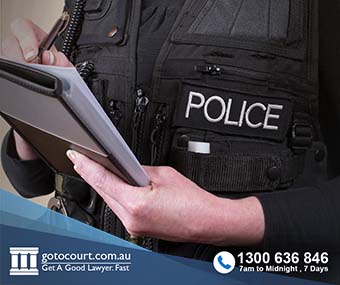Bail Applications in Tasmania
Bail Applications in Tasmania
Bail is a signed undertaking by a person charged with an offence and released from police custody pending a hearing on the charges. It sets out the conditions for his or her release and will always include a requirement that the defendant appear in court at a specified time and place. This page deals with bail applications in Tasmania.
Bail laws in Tasmania
The law on bail in Tasmania is governed by the Bail Act 1994. There are also specific rules for granting bail for certain offences under the Criminal Code Act 1924, the Justices Act 1959 and the Family Violence Act 2004. There are further rules set out in the Crimes Act 1914, if the offence is a Commonwealth crime.
Bail conditions
Depending on the seriousness of the offence and the criminal history of the person arrested, there may be conditions as to where that person can or cannot reside and how they conduct themselves. A sum of money (a surety) may be required to be promised or deposited. Bail can be given by police officers and also by the courts. Not everyone arrested will be released on bail.
Police bail
The police can grant bail and release a person charged, provided that it is in the interests of justice to do so, with a few exceptions. The police cannot grant bail to a person who is arrested on a warrant. If a person is charged under the Family Violence Act 2004 with an offence of committing family violence or breaching a Family Violence Order (FVO) or a Police Family Violence Order (PFVO), they cannot be given bail by police. A person released on police bail will receive a document setting out the charge and the date and time that they have to appear in court, and any other conditions of the bail. If the person does not follow the bail conditions or does not appear at court then they may be arrested and brought to court. The court will decide if further bail should be granted or if the conditions of police bail should be varied.
Court bail
If the police do not grant bail, then the person charged can apply to the court for bail. There is a presumption that a person should be granted bail until their matter can be dealt with, however that has to be balanced against a need to protect the public. If bail is not granted at a person’s first court appearance, they can make another application at any other court date. If they are refused bail and are remanded in custody, they may apply to the Supreme Court to overturn the decision of the Magistrate and to grant bail. If bail has been refused or a change in bail conditions is sought, it is treated as a new application for bail.
Considerations for granting bail
When determining whether to grant bail the court needs to consider whether the person charged is likely to come to court, whether the person is likely to not re-offend in the meantime, and whether it is in the public interest to release him or her. For a family violence offence the main consideration is whether the person’s release would be likely to impact upon the safety, wellbeing and interests of a person who is protected by the order. The Magistrates Court of Tasmania has the power to grant bail on all offences except murder, which only the Supreme Court has jurisdiction to grant. If a person who has been convicted of an offence wishes to appeal against either the sentence or the conviction they may ask for bail until the Appeal is heard. In these instances bail will only be granted if special circumstances exist.
Commonwealth offences
Before granting bail for Commonwealth offences consideration must be given to the potential effect of the grant of bail on any victims of, or witnesses to, the offences. There are also special considerations regarding customary law and cultural practice. For some Commonwealth offences bail may not be granted unless the person hearing the application considers that the circumstances are so exceptional that bail should be granted. These include certain treason and terrorism offences, some drug importation or exportation matters, and offences where the person’s reckless or deliberate actions have caused, or could have caused, a death.
Breach of bail conditions
A person can be arrested and brought back to court for breaching any of their bail conditions. The penalty for breaching a bail condition in Tasmania is a fine of $2,800.00 and/or up to 12 months imprisonment. The breach of bail will also be taken into consideration in any future applications for bail. If there was a surety provided for the bail then this will also be forfeited.
If you require legal advice or representation in any legal matter, please contact Go To Court Lawyers.

Affordable Lawyers
Our Go To Court Lawyers will assist you in all areas of law. We specialise in providing legal advice urgently – at the time when you need it most. If you need a lawyer right now, today, we can help you – no matter where you are in Australia.How It Works




1. You speak directly to a lawyer
When you call the Go To Court Legal Hotline, you will be connected directly to a lawyer, every time.

2. Get your legal situation assessed
We determine the best way forward in your legal matter, free of charge. If you want to go ahead and book a face-to-face appointment, we will connect you with a specialist in your local area.

3. We arrange everything as needed
If you want to go ahead and book a fact-to-face appointment, we will connect you with a specialist in your local area no matter where you are and even at very short notice.










